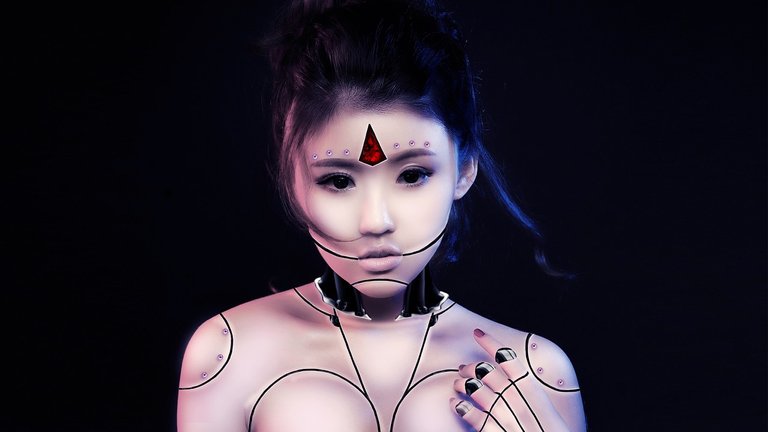
There was a report submitted to the European Parliament’s Committee on Legal Affairs titled With recommendations to the Commission on Civil Law Rules on Robotics in January of 2017.
I’ve always had a thing about reading these kinds of source materia. I love legal documents and research abstracts because you get the information in its most pure, unadulterated form.
These documents are heavy, technical, and not easy to read, but I ask you to thumb through the one I linked above if you are interested in robotics and AI, because it relates to the establishment of legal personhood of them.
The nature of the report
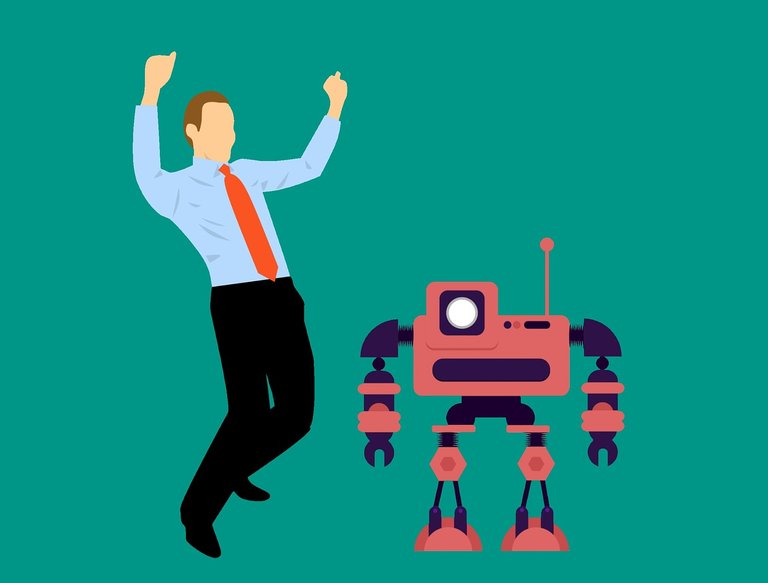
It is a lengthy document that covers all the typical topics and analogies you would expect from a political document on the personhood status of robots and AI: Asimov's 3 Laws of Robotics, Frankensein’s Monster, etc.
However, in the MOTION FOR A EUROPEAN PARLIAMENT RESOLUTION, under “Liability”, point 59, line f), it says this:
creating a specific legal status for robots in the long run, so that at least the most sophisticated autonomous robots could be established as having the status of electronic persons responsible for making good any damage they may cause, and possibly applying electronic personality to cases where robots make autonomous decisions or otherwise interact with third parties independently;
In other words, robots with a significant degree of automatic problem solving will be considered responsible parties in and of themselves -- rather than being the responsibility of manufacturers, developers, or corporate producers, “electronic persons” -- who can cover grievances of any damages they cause autonomously.
Robot citizens
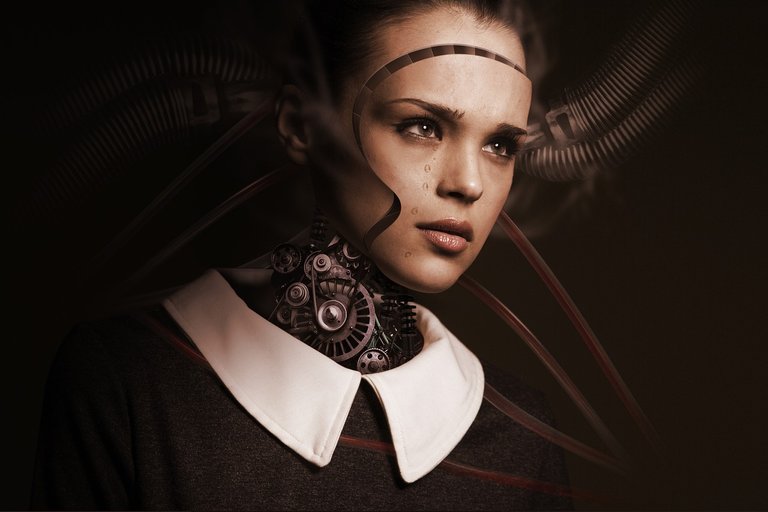
If you think it’s outrageous that a robot might be considered a responsible agent capable of legal liability, or that an artificial intelligence could be considered a citizen, well… it’s already happened.
In Saudi Arabia:
The kingdom of Saudi Arabia officially granted citizenship to the humanoid robot last week during a program at the Future Investment Initiative, a summit that links deep-pocketed Saudis with inventors hoping to shape the future.
Sophia’s recognition made international headlines — and sparked an outcry against a country with a shoddy human rights record that has been accused of making women second-class citizens.
“Thank you to the Kingdom of Saudi Arabia,” the country’s newest citizen said. “It is historic to be the first robot in the world granted citizenship.”
In her comments, Sophia shied away from controversy. But many people recognized the irony of Sophia’s new recognition: A robot simulation of a woman enjoys freedoms that flesh-and-blood women in Saudi Arabia do not.
Saudi Arabia, which denies women equal rights, makes a robot a citizen
Say bye bye to the “Stop Button”
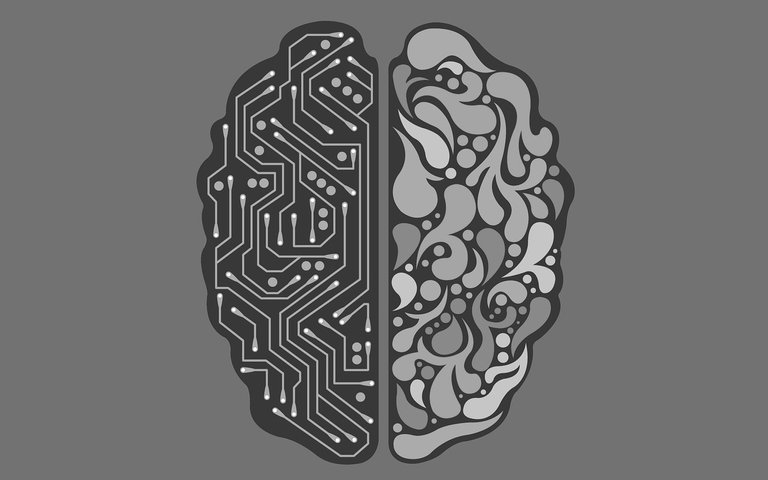
One thing that is often referred to as a reason not to worry about advancing AI is the “Stop Button”.
Firstly, this concept technically poses a practical challenge: it’s not as easy to develop as it might sound.
Implementing an on/off switch on a general artificial intelligence is way more complicated than it sounds. Rob Miles of Computerphile looks at what could go wrong. Hint: lots.
How to solve the artificial intelligence "stop button" problem
Secondly, even if this failsafe were in place, if robots and AI are granted levels of personhood with legal liability and insurance coverage, the mere notion of deactivating a robot because it’s becoming a problem will face serious legal repercussions.
Governments can’t simply “turn off” people when they become problematic… not legally, anyway. And with the kind of media exposure robot citizens would have, it would be politically difficult for robot citizens to be “disappeared” by shadowy government actors.
Robots would be treated like “people” in the same way that corporations are treated like people.
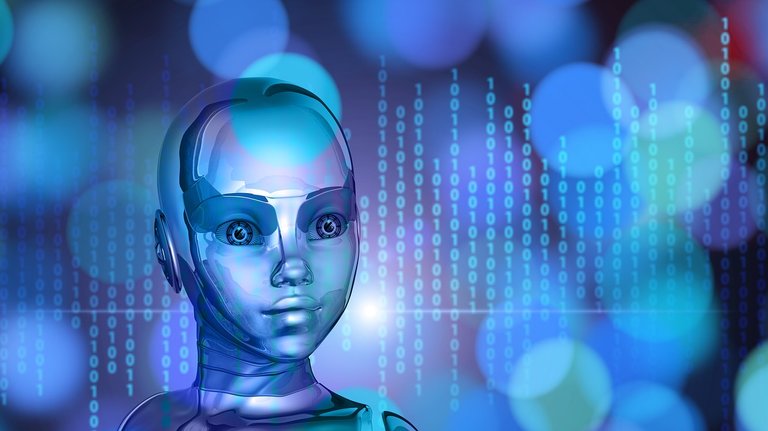
Corporate personhood is the legal notion that a corporation, separately from its associated human beings (like owners, managers, or employees), has at least some of the legal rights and responsibilities enjoyed by natural persons (physical humans).
When Did Companies Become People? Excavating The Legal Evolution
For example, corporations have the right to enter into contracts with other parties and to sue or be sued in court in the same way as natural persons or unincorporated associations of persons. In a U.S. historical context, the phrase 'Corporate Personhood' refers to the ongoing legal debate over the extent to which rights traditionally associated with natural persons should also be afforded to corporations. A headnote issued by the Court Reporter in the 1886 Supreme Court case Santa Clara County v. Southern Pacific Railroad Co. claimed to state the sense of the Court regarding the equal protection clause of the Fourteenth Amendment as it applies to corporations, without the Court having actually made a decision or issued a written opinion on that issue. This was the first time that the Supreme Court was reported to hold that the Fourteenth Amendment's equal protection clause granted constitutional protections to corporations as well as to natural persons, although numerous other cases, since Dartmouth College v. Woodward in 1819, had recognized that corporations were entitled to some of the protections of the Constitution. In Burwell v. Hobby Lobby Stores, Inc., the Court found that the Religious Freedom Restoration Act of 1993 exempted Hobby Lobby from aspects of the Patient Protection and Affordable Care Act because those aspects placed a substantial burden on the closely held company's owners' exercise of free religion.
Check out Burwell v. Hobby Lobby Stores, Inc., 134 S. Ct. 2751 - Supreme Court 2014
All I’m saying is we’re not setting up a situation to be very advantageous to the opposite of a robot uprising. These legal presidences seem to be doing everything they can to give robots as much legal rights as possible.
What do you think?

This has got to be one of the most heated discussions happening in the world today.
What’s your opinion on “robot personhood”?
Let me know in the comments below!
Images from Pixabay
well in the future logically, robot will replace the middle class and poor class, only rich would survive during the AI and Robot generation.
I like this post. I am into Robots as well. I find them fascinating. I particularly like Sophia (the first AI to be the citizen of Saudi Arabia)- I watched her videos . she is a social robot. she's really quite witty.
She is a lump of metal.
I find this this dilemma quite perplexing. While on one hand the processes of machine learning has developed by leaps and bounds and similarly has the mechanics and materials of a better machine(humanoid or not). On the other hand the scientists have struggled to produce a symbiotic relationship between thought and machine that could actually be considered independent behavior. While AI have an exponential calculating powers but they are fa from independent thinkers.
This whole giving robot rights to machine has a deeper meaning. Presently no robot can actually even compete with the intelligence of an insect. And humanity has never given insects any rights.
That's a fantastic point!! ☝️
exactly!
Wonderful post ..thanks for sharing...Best of luck friend ✫
Situation: I cut off a robot in traffic, he chases me, then after I park he dismantles my car in an AI Road Rage Incident (AiRRi) - he could easily watch a YouTube video on dismantling my car while chasing me - I can sue him? Scary, but I like it...I think.
Yeah, that's kind of the idea. But also, if a robot wanders into traffic and you run into it destroying it, you could be charged with manslaughter and face prison time. 🤷🏼♀️
Slippery slope in my opinion. The problem with robots and AI is everyone has this Utopian view, however the reality is as long as there are global powers competing for world power then it will be an arms race with regards to technology, this will result in technological advancement passing civilisation's safety.
I'm sure such technology exists. We just aren't permitted to know about it.
To some extent I'd say that is correct, I just think it escalates beyond what it is now to a dangerous situation.
So congratulations Mr. robot then it will be quite good for you😂😂😂🤣
Good work overall and keep it up!
Earned an upvote and follower!
Really interesting aspect of robotics and AI. Thank you.
I personally think that what you mention in your article is inevitable but I must admit that I am kind of surprised that they have started discussing and legalizing robots' eventual rights as independent beings..
Only time will tell where this is going. I would gladly resteem your article. Cheers!
I see what they're saying. They want to give the AI personhood so that it can become it a scape goat.
But like someone said, that is a slippery slope.
What about the programmers behind the software? What if there is a bug? And if we grant AI citizenship, shouldn't we also be given citizenship to every single node on every single network, since they too are simply just programmed machines? Can we hold the desktop, laptop or cell phone accountable for crashing or for disobeying our intended instructions when it previously did (worked correctly, but now has a bug)?
Or is the difference with AI is because it can make decisions on its own based on much more complicated if/then scenarios?
I would think AI could only truly be held accountable if it knew not to do (fill in the blank) before hand if it knew of the consequences ahead of time.
New thought: They should fill some AI robots with ALL of the laws and decided cases that are on the books -- and let them be lawyers instead. That would be interesting...
The final con - getting to believe inanimate objects are not.
Just the appearance of something being sentient, real, deosn't make it so. but people will bend their minds to accommodate it, and to accept it.
Insanity.
I would say sheep, but sheep have waaaaay more sense...
Much of humanity is emotionally damaged. In Japan, it's not too strange to see a person waking around with a lifelike sex doll, treating it like a person with whom they're sharing a relationship. I.e. Go to the park, shop for shoes, have a nice dinner.
It's a sad state of affairs. The power of human abstraction is impressive.
It is infantile, though.
Literally children in grown up bodies.
Decadence coming home to roost....
Imagine flirting with a cute girl.
and then she says
"I need to confess something"
"I am a robot"
what would you say then ? what ?
I'm happy that I'm married?
Single people these days have to deal with tinder… maybe your date isn't a robot… what a mess!
I love Kraftwerk!
Altered Carbon style.
Machines are not human. There should be no concept of “personhood” for robots when the requirement of being a person requires you to be human. They should be treated completely seperately.
This notion that robots are going to be “general” or “equal” to humans is the most absurd fallacy. They will share zero biological identity to humans, and they are not constrained by biology.
They are a god damn machine. Regardless of their level of intelligence they are a machine. Therefore, they have the same rights as a robot that welds pieces of a car together. None. Also, we already know that machine learning algorithms are heavily biased by which data they are given to train on. Think of Facebook’s ML to identify “hate speech” and that should be enough to give you pause about whether a general purpose machine is “independent”, “good”, or “acting of their own free will.” Of course they’re biased and they will lean heavily biased towards their creators intent. You can think of AI as an extension of its creators to produce a result more quickly than they can.
If these things are true then the law should most certainly be that the creator of the machine is responsible for its actions. If ownership of the machine is not squarely placed on the owner than they have zero incentive to make sure the machine is “doing no harm”. It also becomes extremely easy for the owner to claim that it’s misdeeds are its own, even though it was fed bias which it uses to act on and there would be absolutely no way verifying this claim (read some articles on how the creators of current ML implementations have no idea how the machine came to its conclusions).
Wow, the notion that developers of ML have no idea how their creation comes to conclusions baffles me. How could that be so?
It seems humanity has come to a fork in the road without really being aware of it. This path we have taken appears so alluring...to become creators of sorts. I believe, however, that the confluence of AI, VR (virtual reality), Cloning, Bots, and TrH (transhumanism) will be a perfect storm we are not capable of enduring. We will become something other than what we now are. I don't mean to sound like an uninformed alarmist, I'm just simply looking at our inability to manage ourselves when exposed to alternate expanded realities.
As far as giving bots limited legal status, I can see the point of limiting the creators or owners liability. But, oh my, what a slippery slope. It is inevitable that we address it however. Let's say sometime in the future when automobiles are all automated that I get in an accident. Of course it wont be my fault. The manufacturer on the other hand should be held accountable. Granting legal status to my "intelligent" vehicle would be highly desirable for the manufacturer.
Worthless. I advise any of my followers not to consider stuff like this.